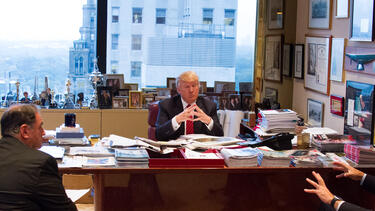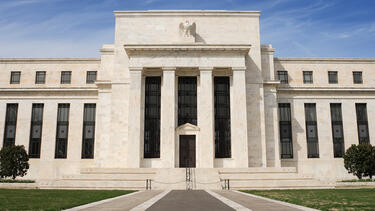Faculty Viewpoints
Seven Reasons Volkswagen Is Worse than Enron
In the Financial Times, Yale SOM’s David Bach writes that the Volkswagen emissions scandal could destroy an iconic German company and set back efforts to use technology to achieve environmental sustainability.

Can Social Innovation and Cross-Sectoral Collaboration Help Solve South Africa’s Problems?
Dr. Francois Bonnici of the University of Cape Town on navigating South Africa's turbulent social sector.

What Can We Learn from Trump?
Leadership scholar Jeffrey Sonnenfeld and political scientist Jacob Hacker, who recently sat down for an hour-long conversation with Donald Trump, discuss their impressions of the man and the current moment in political history.

What Can Aviation Teach Business about Managing Errors?
Professor Jan Hagen of the European School of Management and Technology (ESMT) on the aviation industry's open, immediate, and blame-free approach to errors.

What Does the Ripple in the Chinese Economy Mean for Global Business?
Experts from the Global Network for Advanced Management discuss how the recent fluctuation in the Chinese markets could impact the global economy.

How Should Companies Evolve?
Laurence Capron, professor of strategy at INSEAD, on how companies can break out of old habits and find a path to new growth.

How Does the Changing Price of Oil Affect Economies around the World?
Experts from the Global Network for Advanced Management weigh in on how fluctuating oil prices affect the economy in their home countries.

Why the ‘Dump Trump’ Strategy is Doomed
In a Fortune magazine article, Professor Jeffrey Sonnenfeld suggests that political rivals who underestimate Donald Trump—and the myth surrounding him—do so at their own peril.
Does the Fed Need a Foreign Policy?
As the Federal Reserve prepares to raise interest rates—a move that will be felt globally—Professor Jeffrey E. Garten outlines a foreign policy agenda for the Fed.

The Housing Market Still Isn’t Rational
In a New York Times op-ed, Robert J. Shiller explains why the housing market “is far less rational than even the often irrational stock market.”